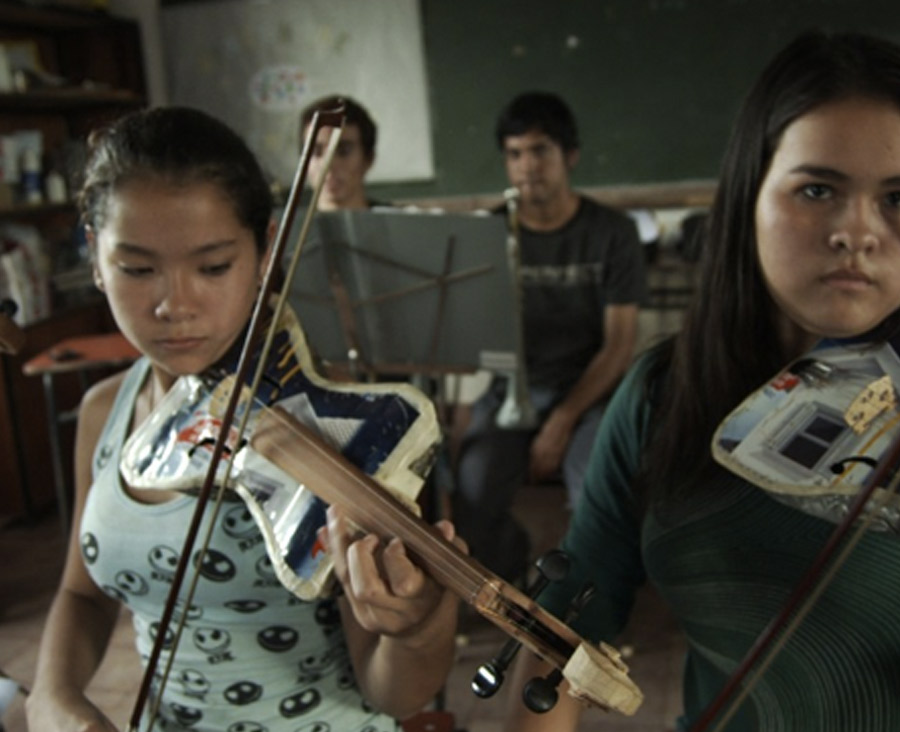“People realize that we shouldn’t throw away trash carelessly,” says Favio Chávez in the trailor for Landfill Harmonic.
“Well, we shouldn’t throw away people either.”
Favio teaches music to children in Cateura–a small city in Paraguay described as a slum built on a landfill.
“My life would be worthless without music” says a little girl, seen in the video carrying a violin made out of recycled refuse. She’s a member of Favio’s Recycled Orchestra.
The children’s parents are gancheros (portugese for “recyclers,” informal labourers who make money foraging the dump for items that can be recycled).
Favio first visited the landfill as a technician, helping the gancheros to classify the garbage.
But, outside of work, Favio was a passionate musician and the conductor of a youth orchestra in his home town of Carapeguá.
One day, he brought his youth orchestra to perform in Cateura. The performance was so inspiring, the gancheros asked if he could teach their children to play music.
Favio agreed, however, the students would need instruments to practice—and, as Favio explains, he couldn’t give instruments to these children, as even one violin would be worth more than a family’s home:
“We couldn’t give a child a formal instrument as it would have put him in a difficult position. The family may have looked to sell or trade it,” Favio told the Guardian.
“So we experimented with making them from the rubbish. We discovered which materials were most comfortable, which projected the right sound and which withstood the tension of the strings. It was fine to hand these out as they had no monetary value.”
Just last month, a documentary film about the recycled orchestra and highlighting issues of poverty and easte pollution, became a fellow successful Kickstarter project.
Beyond just a film, this ambitious project hopes to kickstart a social movement, including a world tour and the creation of numerous chapters of landfill harmonic orchestras around the world.

